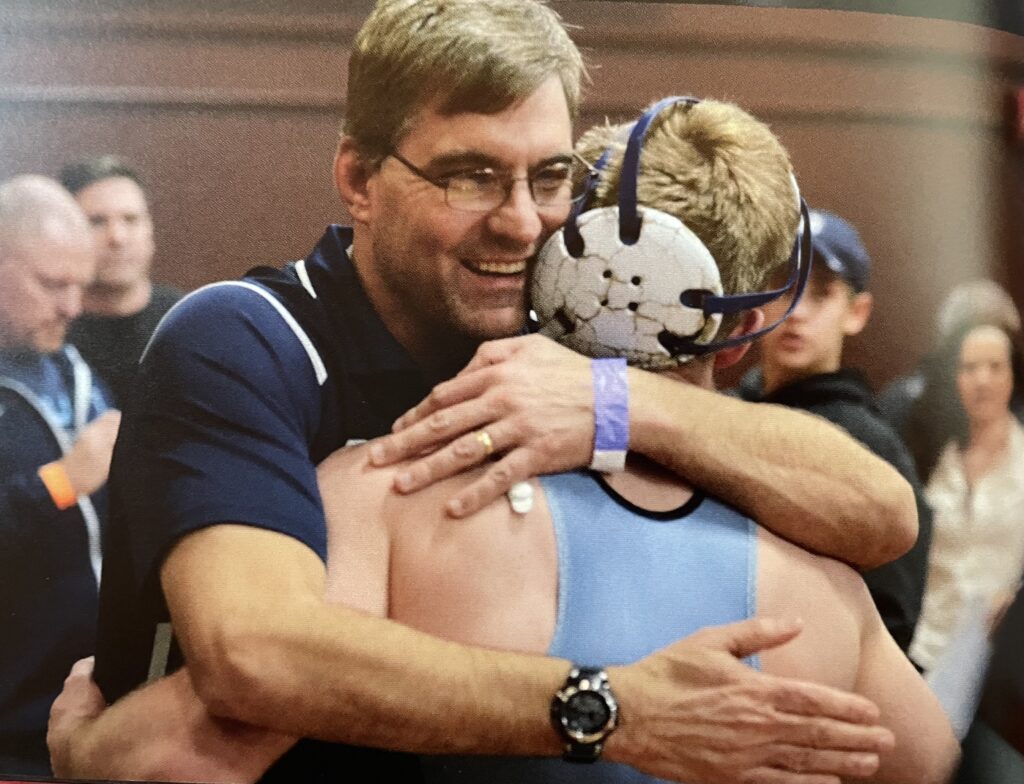Why do you coach? I have come to realize that not many coaches ask this question of themselves before stepping into this role.
Most of the time, a person coaches because their child is on the team, and their consideration of this commitment goes something like this: the team needs a coach, my kid is on the team, and I think it will fun. Therefore, I’ll coach. These aren’t bad reasons to step up and into the role, but they’re not the tools needed to coach well. Also remember that there are five, six, 10, 12 — or more kids — on the team, and the obligation doesn’t reside with just one child. Did that come to mind when you said, “Yes, I’ll be the coach?”
Coaching your kids can be a great blessing and/or a great burden, so your eyes should be wide open when you make this commitment. It is greatly important to understand the responsibilities that come with saying, “Yes.”
Coaches have one of the most powerful platforms in young people’s lives. For many athletes, a coach will serve as a mentor, teacher, friend and counselor. Did you think about mentoring, teaching, or counseling when you signed up? The coaching role gives individuals endless opportunities to influence, empower and inspire others. One coach can impact more young people in a year than most people are afforded in a lifetime. Every coach must remind themselves that with “great power comes great responsibility.” Coaches give their players memories, life lessons and advice that often will stick with them for years.
And you thought your impact was just for this season.
The questions to ask before becoming a coach
Why would someone take the responsibility that comes with being called Coach? Every individual has reasons and motivations for joining the coaching ranks, but it’s important to know that this “part-time gig” often feels like so much more than that. Your intentionality when you coach ultimately will define your coaching philosophy and how you communicate with your athletes. I strongly encourage that you ask yourself the following questions before delving into practice plans and blowing the whistle:
- Why do I coach?
- What are my goals for this team?
- What do I want every young person to leave the season with?
- How do I define and measure success for this team?
- What do the parents of these players hope for this season, and can I deliver it? Do we want the same things?
Choosing the kind of coach you want to be
Many young people playing sports feel diminished and discouraged by the very activities that should strengthen, encourage, and fulfill them. If you want to step into the coaching circle, ask yourself, “What kind of coach do I want to be?”
DON’T be a transactional coach. Transactional coaches use players as tools to meet their personal needs for validation, status, and identity. They look for what they can get out of coaching and not what they can give. Transactional coaches often ignore athletes’ developmental needs and often manipulate and distort the values of winning and losing. Many athletes obey these coaches out of necessity but never fully accept their belief systems or buy into their programs. Athletes develop a strategy to participate in the transactions. They activate the process of trying to satisfy their coach by exchanging their performance for their praise.
DO be a transformational coach. In comparison, transformational coaches impart life-changing messages; are others-centered; and use their platform to nurture and transform players. A transformational coach realizes the power of the coaching platform to inspire, motivate and produce positive change in his/her players. The only way to coach young people is to seek to transform their sense of their own worth, talents and value. Athletes follow these coaches because they sense their authenticity, and both the coach and the player believe in one another.
How to coach well
If you want to do this coaching thing well, open yourself up to being coached. Find a coach who is transformational and not transactional. Volunteer alongside a transformational coach for a season. Pick his or her brain, learn what you can, and build a quiver of coaching tools that will allow you to bring a transformational experience to the young people who call you “Coach.” I enjoy helping other athletics coaches and welcome hearing from you.
Good luck in this noble work. I hope for you a fulfilling coaching experience that also challenges and blesses your child and all of the other players on the team.

